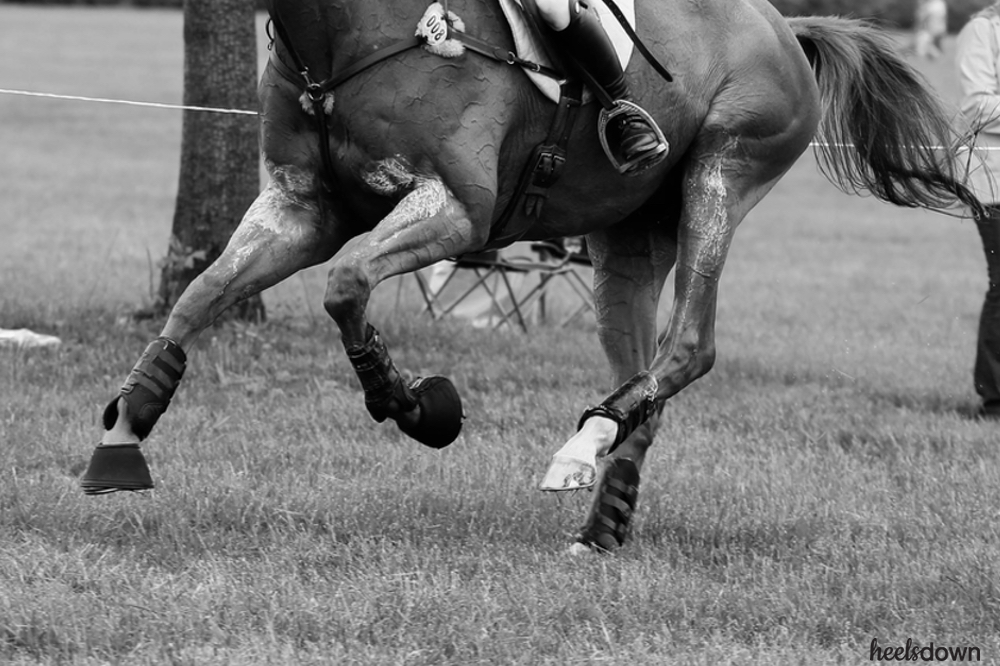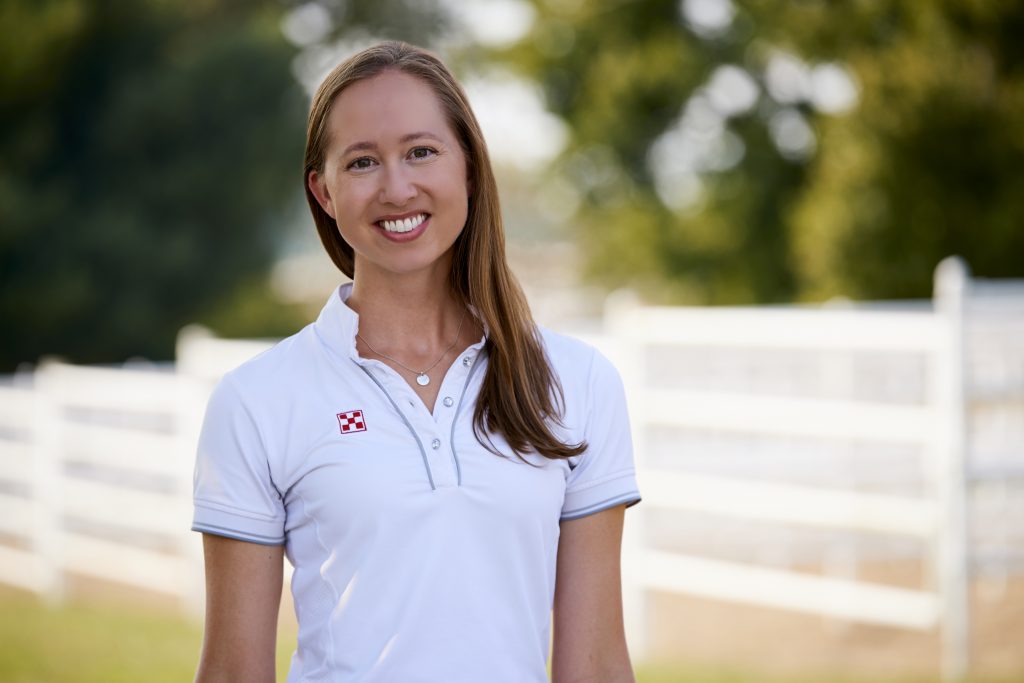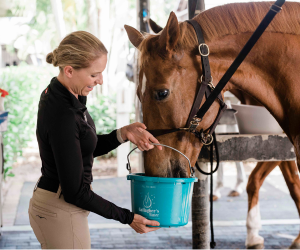What Do 5-Star Eventing Horses Eat?

It’s no secret that the horses prepped and fit to run cross-country at the Kentucky Three-Day Event eat a lot of calories. They’ve got to in order to tackle a grueling five-star course. Heels Down sat down with Purina equine nutritionist Dr. Anna Pesta Dunaway to talk about the nutrition needs of some of the fittest horses and what it’s like to manage those diet needs ahead of the Best Weekend All Year.

What are some of the most important ingredients to consider when feeding for performance?
The nutritionist nerd in me has to say there’s a difference in nutrients versus ingredients. Things like omega 3s and amino acids are important nutrients, which can be fed through a supply of various ingredients in the diet, like soy bean meal or flax seed. Looking for specific ingredients on a feed tag may not send you down the right path. I wouldn’t get fixated on it- you don’t need something with flax seed in it, for example, to get the nutrients you need and want in a feed. Moreso it’s important to look at a feed with a certain amount of omega 3s.
But there are elements that bring a boost for performance. Those nutrients become more important the harder the horse works. Amino acids and omega 3s have an important place for anti-inflammatory response and recovery.
What is a “forage-based” diet and why are we hearing more about this lately?
We can be really good at latching onto something that’s basic and turning it into a trend. The forage-based diet is having a moment right now. All of our horses, no matter how hard they work, are on forage-based diets, believe it or not. I want horses to get as much as they can from the forage component of their diet. If your horse is a fairly easy keeper, they can pretty much get what they need from high-quality forage and a good ration balancer. You can add in oils for skin issues.
What a lot of people are doing is reverse engineering feed. It’s a worthy goal to feed forage first, because you want the bulk of the diet to be high-quality forage. So in addition to hay, people may feed soaked alfalfa or Timothy cubes or pellets, rice bran and oil, which is basically just piecing together the things we have in feeds already, but without some of the important things like amino acids. As horses work harder, they need a better amino acid profile to help develop muscle like top line. That’s the hole I so often see in forage-based diets. You can supplement that in and still put a nice diet together. But for a high performing horse, you may not be able to add enough calories from forage to get them in good body condition and to fuel the type of work they’re in. That’s where you need to move to a bagged feed for calorie and nutrient density.
What supplements are worth feeding for performance?
I tell people it’s all about the horse’s individual needs. Some horses may have inherently poor hoof quality and will benefit from a hoof supplement. If I want to boost Vitamin E, I can do that by adding a good quality supplement. Things that also make sense are gastric support supplements for horses who are prone to upset or are in a stressful workload.
I tell people to consider if they can definitely see a difference from the supplements they use, and if they would notice if they stopped feeding it. If you aren’t doubling up on too much and it’s not hurting anything, then I don’t see a problem. But to be a skeptical consumer is a good thing when shopping for supplements.
How many meals a day should a horse be getting in an ideal world?
As many as it takes. I find that the biggest struggle with some of these hardworking horses when fitness work is ramping up, is that their appetites tend to suffer. They get extra picky and have other things on their minds. Sometimes we have to get creative. I know horses at the top levels that are very hard keepers and others that are surprisingly easy. I think most of them eat about three meals a day. I know some horses that don’t eat breakfast because they like to wait until after their morning workout. Some are offered a scoop four times a day just to get the calories in. It all depends on their calorie needs and has a lot to do with their breed type and metabolism.
What are the most important ingredients in terms of recovery after hard work?
One of the fun things about nutrition for your horse is once you’re “officially” working hard enough, you get to be more dialed-in and customize their needs. Hydration is huge. Putting back in what they sweat out is important, too. Plain salt isn’t going to work anymore at this level, so it’s worth investing in a good quality electrolyte. Once your horse is cooled out, you want to give them a post-workout snack with amino acids for recovery. Think of it as drinking your BCAAs after the gym – it really does work like that. This is a good time for gastric ulcer prevention to help settle their stomachs. Some horses get a “recovery” lunch every day.
Any tips or advice to help feed picky eaters while traveling?
My advice is to be flexible and prepared. If you find that they’re not feeling their normal hay anymore – you should be willing to buy whatever forage they want to eat. Don’t be afraid to experiment. As they start working harder, they get stressed and their appetites can suffer. It’s OK if their diet isn’t the same in a competition cycle as the rest of the time. Make sure we’re keeping the good quality forage in them during a travel situation.


